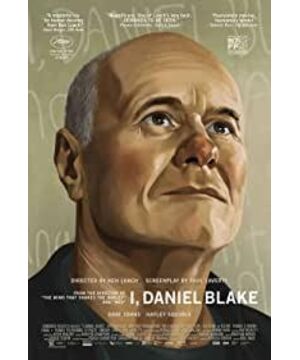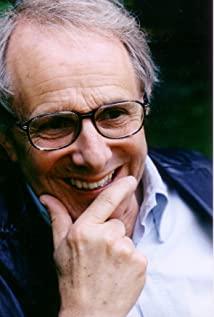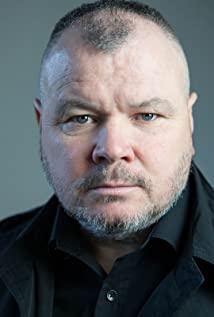"I, Daniel Blake" ( I, Daniel Blake ), which won the 2016 Cannes Palme d'Or , tells the story of a personal struggle against the system. Blake, a carpenter in his 60s, was judged unable to work because of a heart attack. To maintain a living, he applied for unemployment benefits from the government, but he was rejected because he did not meet the qualifications. In the process of dealing with the system, he met Katie, a single mother who was in a similar situation. Rigid systems confront pedantic bureaucracies.
This is a concise and powerful story, and director Ken Loach, as always caring about humanitarian themes, this time focuses on the underclassmen, without playing with fancy structures or complex plots, purely with sympathy and criticism The power to win is not only the background of the story in the United Kingdom, but can probably resonate in any country, especially Taiwan, where labor issues have been raging this year.
In the film, the director used a clever metaphor to accuse the system of killing invisible things: Blake asked Katie's son Dylan which one killed more people, sharks or coconuts. The answer was not a shark, but a seemingly harmless one. coconut. Sharks represent tyranny visible to the naked eye, but coconuts are a system that is easily overlooked. Whether it is a consultation phone that is always busy, a decision-making unit that can never find anyone, or a rigid system that is always “administrative by law”, the original intention of establishing the system may be Good, but the road to hell is often paved with these twisted good intentions.
Not only does it criticize the system, but the film also presents the exploitation and injustice of capitalism through Blake's neighbors buying original sneakers from China and selling them on the street at half price. In addition, the process of applying for grants through Black also pointed to the issue of generational differences. Blake, who doesn't know how to use a computer, came across an application system where everything had to be operated online, but no one in the responsible unit was willing to provide assistance. He tried hard and failed as expected. In addition, Black was asked to take a curriculum for writing a resume, but the course was designed for young people, and it didn't help Black, who didn't even know how to use a computer. These seemingly natural changes are extremely unfriendly to the previous generation, and Blake's loneliness and helplessness are revealed in these details.
Of course, Blake did not fail to meet good people. In addition to the family of a single mother who was suffering from the same illness, passers-by, civil servants in charge of the unit, and Blake's neighbors also provided considerable assistance when Blake was using the computer. However, the assistance of others is limited after all, passers-by helped him to complete a certain stage of the operation and left, the civil servant taught him to fill in the form halfway through, and even the supervisor directly asked him to give a lecture (because it is not allowed to do so according to regulations), these are invalid Help becomes the epitome of symbolism: injustice in society happens every day, but people's goodwill has its limits, if not forcibly terminated, it may become impatient because of the long process. Long-term attention is difficult. Everyone can feel resentful when they hear about Black's experience for the first time. However, continuous concern is still up for debate. How not to reduce attention due to time is what needs to be solved most in contemporary social issues. question.
People are driven to a dead end step by step. From the beginning of Blake's good voice, to out-of-control disputes, to directly spraying paint on the outer walls of government offices, the audience can see how people are distorted step by step in the huge system. Although he sprayed "I'm Daniel Black" on the wall, in the face of the cold system, he actually had no name at all. And just as Katie has no money to buy food, is forced to steal, and is so hungry that she devours the food bank like a wild dog, human dignity can easily be taken away. Even the seemingly naive Dylan has developed a negative attitude of "no one listens to him, so he doesn't listen to anyone else."
The director did not intend to tell an overly beautiful inspirational story from beginning to end, and even if there was a turning point in the end, the film still ended with cruel pessimism. Blake's death from a heart attack was a tear-jerking scene, and such an extreme accusation may have elicited more sympathy/anger from the audience than Blake's successful case. Although the grief was a little forceful, Blake's letter, which he was supposed to read in court, was read through Katie's mouth at the funeral, but it had its own positive meaning. Black wrote in the letter: "I am Daniel Black, I am a man, not a dog. I demand my rights, I demand respect. I, Daniel Black, am a citizen, no more, no less. .” Dao said that he was struggling with life at the bottom, but was constantly humiliated by the system. He did not have excessive expectations, but he did not compromise on losing self-esteem. The letter read by Katie seems to imply that although Black is dead, his will will be inherited, and although it must be a long struggle, it is the only hope that can be had in the dark despair.
View more about I, Daniel Blake reviews










